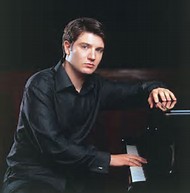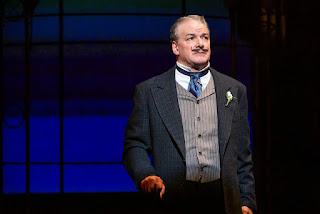The voice of GPS: If only we could humanize it more (An Automotive/Theatrical Fantasy)

Adam Crowe and Lauren Briggeman I don't know how many of you have had trouble with the GPS voice, but I have, and it's become a cryptic companion whose word is mum. I feel dependent on it when I'm going to a new place and need navigational help. If I'm traveling alone, it's an especially essential tool. But I have to hear it. In my new car, I can only get it to work on the first step of the directions I've entered. Then it clams up, and I must steal glimpses of the screen to see where I am. Fortunately, we took Susan's car on a trip to Dallas to see our son Theodore about a month ago, in what now seems like another world. Her vehicle has a larger, mounted screen on the dash and presumably reliable voice support. But in leaving the city from our hosts' home, we got turn-by-turn vocal directions that took us through urban-sprawl hell. We must have entered an instruction to avoid highways. We faced the prospect of driving a thousand miles back to





